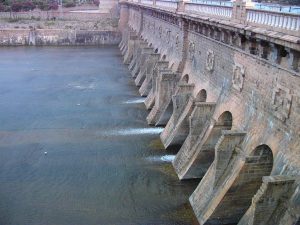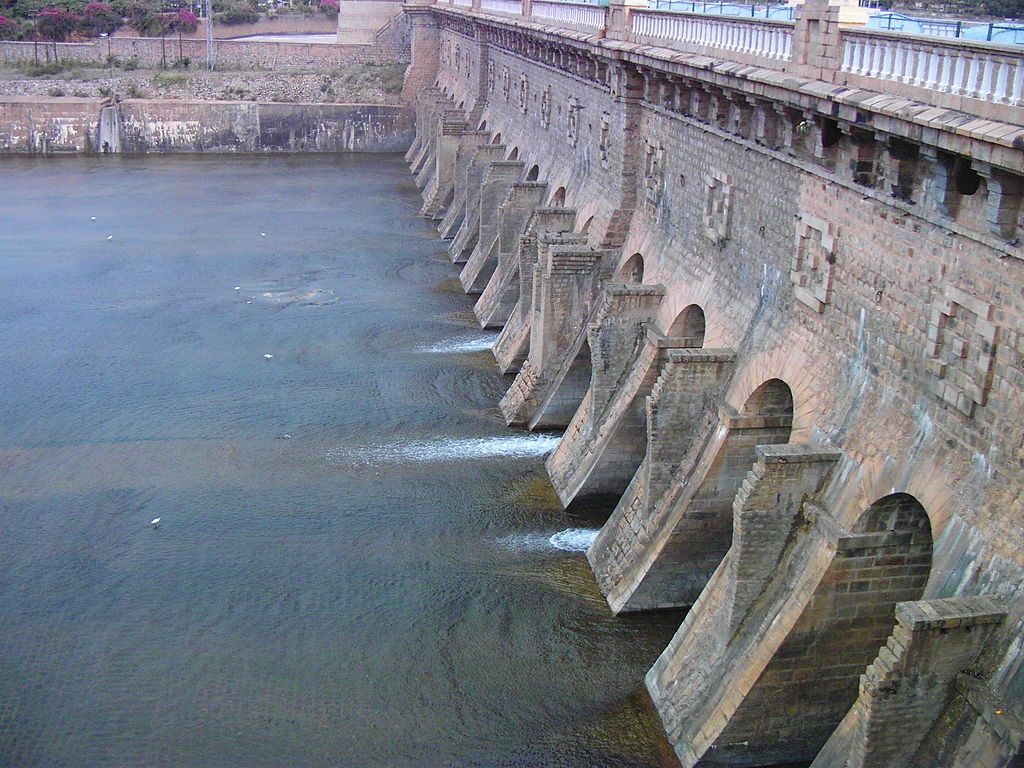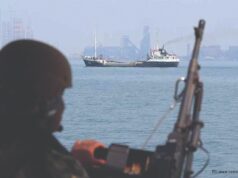 New Delhi: The dispute between Karnataka and Tamil Nadu over river Cauvery’s waters has been on for many years. The sharing of waters of the Cauvery River has been the source of a serious conflict between the two states. The origin of this conflict rests in two agreements in 1892 and 1924 between the erstwhile Madras Presidency and Kingdom of Mysore.
New Delhi: The dispute between Karnataka and Tamil Nadu over river Cauvery’s waters has been on for many years. The sharing of waters of the Cauvery River has been the source of a serious conflict between the two states. The origin of this conflict rests in two agreements in 1892 and 1924 between the erstwhile Madras Presidency and Kingdom of Mysore.
More than 750-km long Cauvery River, also called the Ganga of the south, is considered the lifeline for Karnataka and Tamil Nadu. Cauvery River has 44,000 km2 basin area in Tamil Nadu and 32,000 km2 basin area in Karnataka. The inflow from Karnataka is 425 TMC ft however that from Tamil Nadu is 252 TMC ft. Based on inflow Karnataka had wanted its due share of water from the river. It stated that the pre-independence agreements were invalid and were twisted heavily in the favour of the Madras Presidency, and therefore had demanded a renegotiated settlement based on equitable sharing of the waters. Tamil Nadu, on the other hand, appealed that it had already developed almost 3,000,000 acres of land and hence had become dependent very heavily upon the existed pattern of usage. Any change in this pattern, according to Tamil Nadu people would have adversely affected the livelihood of millions of farmers in the state. For years the dispute between the two states continued.
The Government of India then decided to form a tribunal in 1990 which would look into the matter. After hearing arguments of all the parties involved for the next 16 years, the tribunal delivered its final verdict on 5 February 2007. In its verdict, the tribunal allocated 419 TMC of water annually to Tamil Nadu and 284.75 TMC to Karnataka; 30 TMC of Cauvery river water to Kerala and 7 TMC to Puducherry. Karnataka and Tamil Nadu being the major shareholders, Karnataka was ordered to release 177.25 TMC of water to Tamil Nadu in a normal year from June to May.
The Cauvery River Water Dispute Tribunal was set up on June 2, 1990, and gave its final report on February 5, 2007, which was challenged before the top court by all the three states and the union territory. Karnataka had told the Supreme Court that 1924 agreement between the then British province of Madras and the princely State of Mysore could not be the basis of sharing Cauvery river water between the present day Karnataka and Tamil Nadu and present-day needs must be taken into account. It said that water sharing was decided on the basis of 1890 and 1924 agreement without determining equitable share and its apportionment.
Late Jayalalithaa, Chief Minister Tamil Nadu had stated in a letter to former Prime Minister Manmohan Singh to convene a meeting of the Cauvery River Authority immediately to decide the issues involved. According to her the Karnataka Government has been unjustly utilizing the water for summer irrigation from February to May by depleting the storage in its four major reservoirs. Owing to the depletion of storage during summer, Karnataka possessed all the initial monsoon flows in its reservoirs and released water only when the reservoirs started surplussing, thus affecting inflows into the Mettur dam. This as a result had affected the paddy crop badly and delayed long-term crop cultivation, in Tamil Nadu. Many ministers have raised their voices against the unjust behavior of Karnataka Government. Few years ago Mr. Radhakrishnan, had insisted the Karnataka Government, which had to release water in the Cauvery as mandated by the Cauvery River Water Authority, to do so without further delay.
After a long struggle and debates the Supreme Court today has given the verdict upon the Cauvery River issue. Though the verdict has not been in favor of Tamil Nadu and as result many of the leaders and activists aren’t happy, whereas on the other hand people in Karnataka had been celebrating since when the verdict has been passed by the court. According to the verdict, Karnataka has been ordered to release 177.25 TMC ft of Cauvery water to Tamil Nadu from its inter-state Biligundlu dam. And also Karnataka will get enhanced 14.75 TMC ft water which will be above the 2007 Cauvery Water Dispute Tribunal (CWDT) award of 270 TMC ft Cauvery water. Whereas the 2007 tribunal award of 30 TMC ft of Cauvery water to Kerala and 7 TMC ft to Puducherry will remain unchanged.
Tamil Nadu will now get a total of 404.25 TMC ft of Cauvery water instead of 419 TMC ft allotted by the tribunal in 2007, the total includes groundwater.Tamil Nadu has been allowed to draw additional 10 TMC ft ‘groundwater’ from a total of 20 TMC ft beneath the Cauvery river basin. The Supreme Court made it clear that its order on Cauvery water allocation will continue for the next 15 years.
The Supreme Court said in its verdict that the increase in Cauvery water share for Karnataka is on account of groundwater and drinking water requirement for Bengaluru residents. The court also mentioned that drinking water has to be kept on the highest pedestal.
The much-awaited judgment was pronounced by a bench comprising Chief Justice Dipak Misra and Justices Amitava Roy and A.M. Khanwilkar, which had on September 20 last year reserved the verdict on the appeals filed by Karnataka, Tamil Nadu and Kerala against the 2007 award of the tribunal. After the verdict actor turned politician has stated though he is not satisfied with the verdict but he regards it completely and added that he hopes now the issue does not get politicized further.









